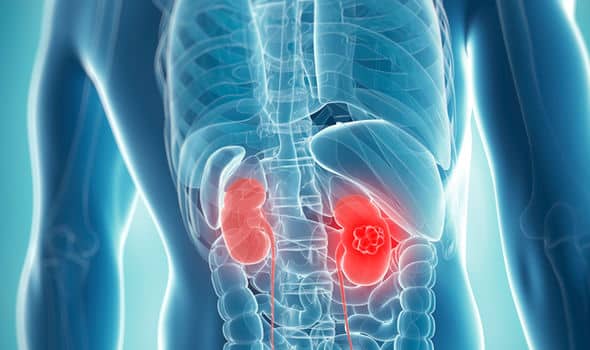Kidney Health, Lifestyle
How To Prevent Kidney Diseases ?
Kidneys are the organs which filter waste products from the blood. They are also involved in regulating blood pressure, electrolyte balance, and red blood cell production in the body.
You might think that the kidneys only filter waste from your body, but your kidneys also regulate your blood pressure, protect your bones, and keep minerals and fluids balanced in your body, among other things.
Unfortunately, one in three people in the country are at risk for chronic kidney diseases. This disease most often develops as a consequence of another condition and develops over the course of several months or years. There are things you can do to reduce your risk for this damaging kidney disease.







Symptoms
Signs and symptoms of chronic kidney disease develop over time if kidney damage progresses slowly. Signs and symptoms of kidney disease may include:- Nausea
- Changes in how much you urinate
- Decreased mental sharpness
- Vomiting
- Loss of appetite
- Fatigue and weakness
- Sleep problems
- Muscle twitches and cramps
- Persistent itching
- Chest pain, if fluid builds up around the lining of the heart
- Shortness of breath, if fluid builds up in the lungs
- Swelling of feet and ankles
- High blood pressure (hypertension) that’s difficult to control.
Causes
- Kidney stones
- An enlarged prostate
- Blood clots within your urinary tract
- Damage to the nerves that control your bladder
- Some diseases and conditions may lead to kidney failure
- Drugs and alcohol.
- Infection.
Tips To Prevent Kidney Diseases
Drink Plenty Of Pure Water
Staying well hydrated helps maintain the volume and also concentration of blood. It also promotes good digestion, regulates body temperature and washes toxins from the body. For most people, that means drinking about 64 ounces of water every day. But if you have kidney diseases or if you’re active and sweat a lot, boost that amount so you are drinking half the amount of your body weight in ounces. For example if you weigh 160 pounds, you should drink at least 80 ounces or 10 glasses of filtered or purified water every day.
Cut Down on Red Meat
Who eat the largest amount of red meat generally had about 40 percent greater risk of developing kidney diseases, while compared with people who are consuming the lowest amounts of meat. Every individual can also still maintain their protein intake unless their kidney function has been severely compromised. However, to reduce the risk of end-stage kidney disease, it is best to eat red meat.
Eat Right
Almost everything that happens inside your body is affected by the kind of foods you eat. If the foods which you eat are toxic and unhealthy, then it will eventually affect body organs – including your kidneys. This is one reason to avoid highly processed and refined convenience foods and fast foods. What should you eat? Foods that strengthen kidney function including green tea, watermelon, asparagus, garlic, parsley, celery and fish.
Good Sleep Time Is Crucial
Generally shorter sleep duration can lead to a more rapid decline in kidney function. Many of the body’s processes follow a natural daily rhythm or so-called circadian clock that is based on regular sleep-wake cycles.
Watch Your Weight
If you are overweight or obese, you are at higher risk of few kidney diseases, kidney stones and kidney cancer. Obesity doubles the odds you will develop kidney stones. Eating a sensible whole foods diet, watching your portions along with a regular exercise program can help you drop extra pounds and improve kidney health.
Cut Down On Sugar
Most of the processed food products contain too much sugar, so when it goes to your system it leads to hormonal imbalance and also your blood profile changes. High consumption of these empty calories can generally leads to obesity and diabetes – diseases that directly impact the functioning of your kidneys. You can treat yourself to your favorite dessert or a fast food burger sometimes as long as it does not replace your daily balanced diet.
Commit To Quit
Smoking can worsen kidney disease and diseases that damage the kidneys, such as diabetes and high blood pressure. Quitting smoke can be more difficult, but it is one of the most essential lifestyle changes which you can make to protect your kidneys and impact your overall health.Exercise
You should exercise to help you lose weight and lower your blood pressure, both of which will reduce your chances of developing kidney disease. Try to get at least 150 minutes of moderate exercise every week. The obese people are twice as likely to develop chronic kidney disease. If your Body Mass Index is over 30, you are considered to be obese. Moderate exercises include walking, cycling, and swimming.



Article is very informative and succinctly giving information for a layman to know the process of the organ and what damage can be caused and how it could be preserved to lead a healthy and medically hassle free life.thanks to the author